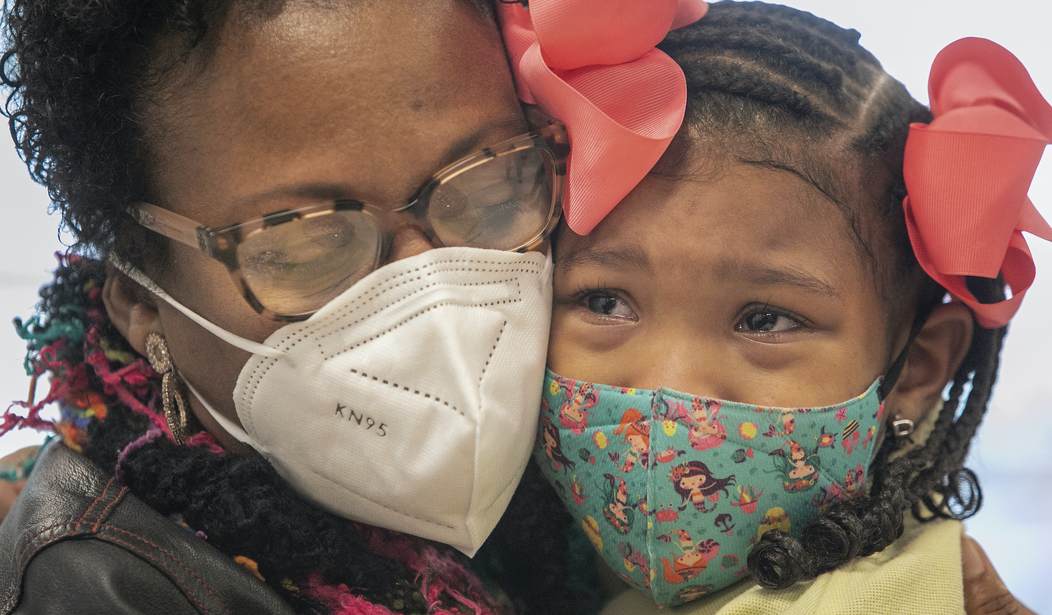The CDC’s Advisory Committee on Immunization Practices (ACIP), in an unprecedented move, is considering adding a vaccine still subject to an emergency use authorization (EUA) to the childhood vaccine schedule. According to the website (emphasis added):
Matters To Be Considered: The agenda will include discussions on influenza vaccines, pneumococcal vaccine, meningococcal vaccines, respiratory syncytial virus vaccine, rotavirus vaccine, dengue vaccines, adult immunization schedule, child/adolescent immunization schedule, COVID-19 vaccines and Chikungunya vaccine. Recommendation votes on pneumococcal, adult immunization schedule, child/adolescent immunization schedule and COVID-19 vaccines are scheduled. A Vaccines for Children (VFC) vote on COVID-19 vaccine is scheduled. Agenda items are subject to change as priorities dictate. For more information on the meeting agenda visit https://www.cdc.gov/vaccines/acip/meetings/meetings-info.html .
The presentations and vote on the COVID vaccine for children occur on Wednesday, and the public may comment on Regulations.gov until the vote on October 20. This meeting follows the FDA and CDC expanding the use of the new Omicron jabs for children as young as five. As many, including Dr. Marty Makary from Johns Hopkins, noted, these recommendations are based on tests in mice. In a tweet, Makary said (spacing and punctuation corrected):
It appears the FDA no longer requires clinical trial data. Pfizer & Moderna’s new Omicron vax (tested in 8 mice) was authorized today for children, who are at the highest risk of vaccine-induced myocarditis. FDA bypassed their expert advisers. The most political FDA & CDC in U.S. history.
Even worse, the Informed Consent Action Network (ICAN) just obtained the data from the CDC’s V-Safe program. This data is different from the much-maligned VARES system. The V-Safe system included approximately 10 million users and was provided to individuals to upload before taking their first vaccine. The data obtained begins in December 2020, capturing people motivated to receive the vaccine and monitoring their response.
Related: New Gain-of-Function Research on Omicron Raises Serious Questions
According to I-CAN attorney Aaron Siri, the CDC committed to publicizing the V-Safe data when the agency set it up to monitor the vaccine rollout. It took a court order for them to release it. ICAN set up a searchable database that is somewhat limited by the data fields provided. The CDC only broke out two age groups, under three and three and older. Still, it provides some shocking insights that the CDC has had for months and never shared with the public.
Out of the approximately 10 million V-Safe users, 782,913 individuals, or over 7.7%, had a health event requiring medical attention, emergency room intervention, and/or hospitalization. Another 25% of V-Safe users had an event that required them to miss school or work and/or prevented them from engaging in normal activities. The vast majority of the data was collected by May 2021. Yet, the public is just seeing it for the first time.
The United States is one of the only Western nations considering this recommendation. Many other countries have abandoned their recommendations for children under 18, and some have only recommended the vaccine for people at risk for serious illness. When nearly 40% of people using V-Safe report some type of reaction that impacted their regular activity up to and including hospitalization, how can ACIP even consider adding it to the childhood schedule?
If ACIP adds the mRNA vaccines to the schedule, many states and school districts could mandate them for school and sports participation. Some states do not offer religious exemptions to the required vaccination schedule. So far, only Florida has deviated from the CDC recommendations in a significant way. After an analysis of vaccine injuries, the state no longer recommends the shots for healthy men under 40. In March, the Florida surgeon general formally recommended against the mRNA vaccines for healthy children.
Recommended: BlackRock Gets Downgraded for the Increasing Political Risk of ESG Investing
One member of the FDA’s Vaccines and Related Biological Products Advisory Committee (VRBAC) has spoken publicly on a risk/benefit analysis for the mRNA vaccines. At the end of September, Dr. Paul Offit appeared in an interview with Yahoo Finance and suggested boosters and new vaccines get reserved for high-risk individuals. Offit acknowledged that the only population that benefited from third and fourth booster shots were people over 75.
When the interviewer noted the low booster uptake among children, Offit responded, “Right, so think of your otherwise healthy, say less than 65 years of age and don’t have any health problems. What a booster buys you is a few more months of protection against mild illness. So low risk, low reward.” Later he added, “I just don’t think it’s going to make much of an impact in otherwise healthy young people.”
Let’s hope the members of ACIP agree.










Join the conversation as a VIP Member